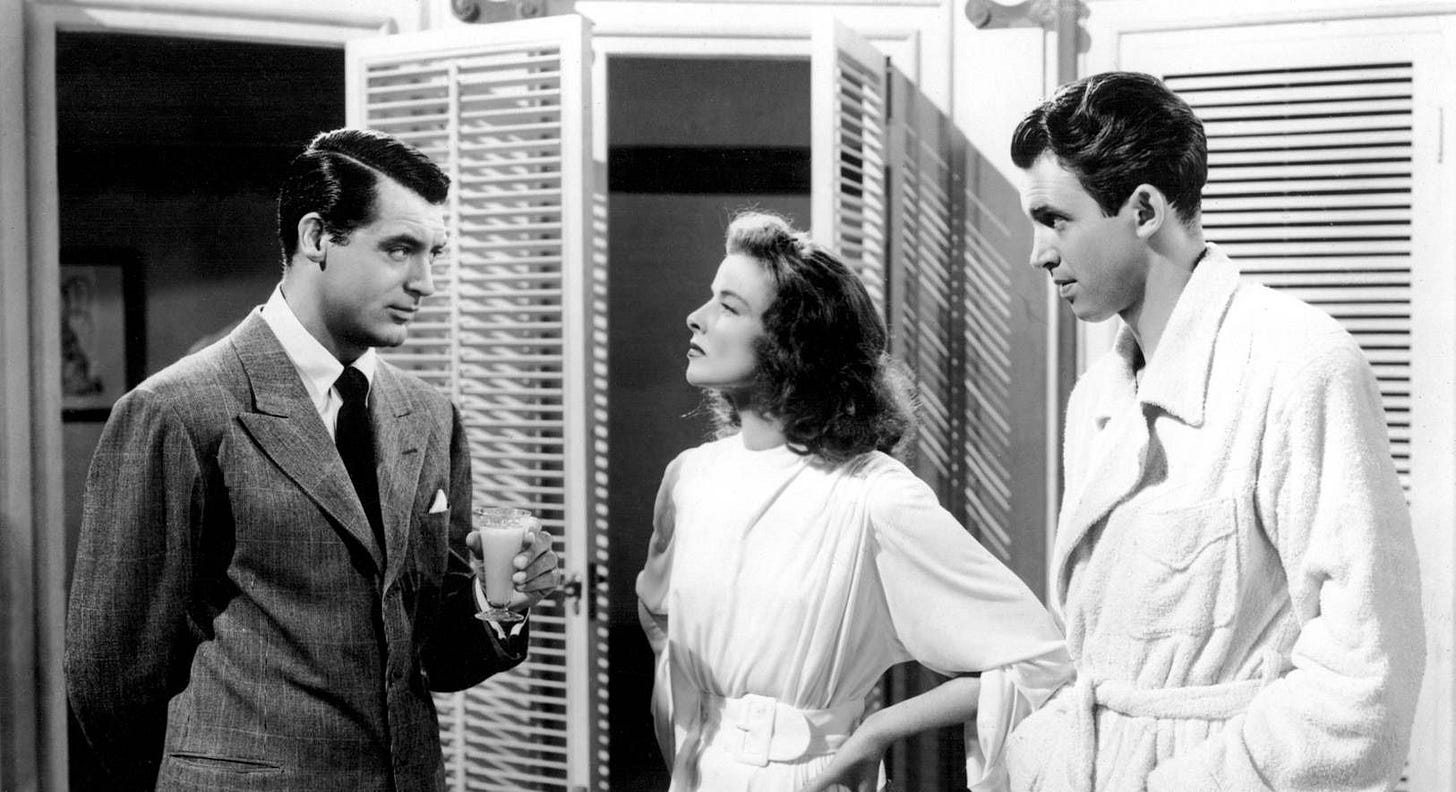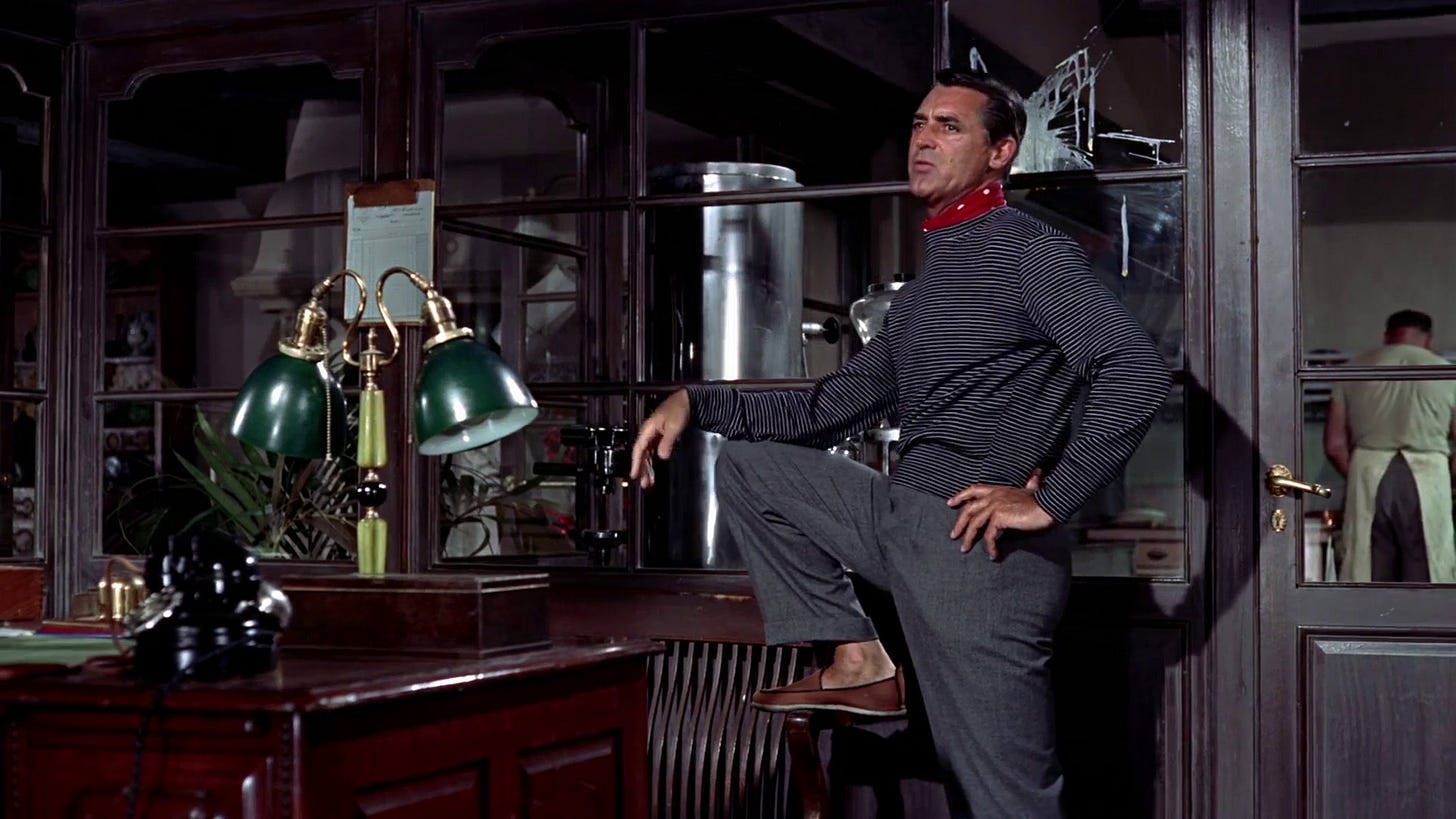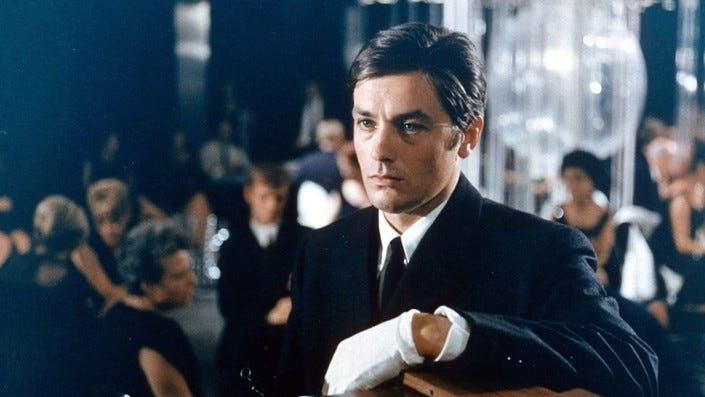7 Style Lessons from 7 Classic Films
What cinema’s most iconic men still teach you about elegance
Style and cinema have always shared a deep affinity.
Sometimes it’s a designer’s vision injected into a character; sometimes it’s a character who inspires a way of dressing.
Since A Trip to the Moon, over half a million films have been made—and among them, a select few endure as timeless.
For men, “classic” and “style” have always walked together. They never go out of time.
Here, from seven films that have stood the test of taste, are seven style lessons that still speak clearly to the discerning man.
#1: Silhouette Defines Aesthetic – The Philadelphia Story (1940)
Few films surpass the elegance of The Philadelphia Story, with its powerhouse cast: Katharine Hepburn, James Stewart (who won his first Oscar for it), and Cary Grant.
In the 1930s–40s, the male ideal wasn’t lean minimalism—it was sculptural presence.
Enter the English drape cut: structured shoulders, full chest, nipped waist, and trousers that drape from hip to ankle.
Cary Grant’s double-breasted suit in the Spy magazine office, or Stewart’s black tie amid white ties, show how silhouette creates tone.
Clothes are architecture. Think about the line your jacket gives you, the way trousers fall.
In the end, shape isn’t just aesthetic—it’s emotional posture.
#2: Elegance Endures the Rain – Casablanca (1942)
“We’ll always have Paris.” And we’ll always have Rick Blaine in a trench coat.
Humphrey Bogart, as the world-weary American, wears his double-breasted gabardine with stoic grace in Casablanca’s mist and melancholy.
Set in Morocco’s sultry rain season, this is where gabardine proves its mettle—water-repellent, breathable, and timeless. It’s not just a raincoat; it’s a shield.
Details like shoulder epaulettes or belted waists add flair, but even without them, a well-fitted trench holds its own.
Whatever the weather, elegance doesn’t vanish—it adapts.
#3: Casual Doesn’t Mean Careless – To Catch a Thief (1955)
Casual dressing walks a fine line.
Try too hard, and you look stiff. Try too little, and you risk sloppiness.
Cary Grant, ever the master of balance, offers a blueprint in To Catch a Thief.
On the French Riviera, Grant wears a Breton sailor shirt, relaxed flannel trousers, and Venetian loafers—effortless but exact.
The genius is cultural literacy: he dresses down to blend in, but never lets go of elegance. That’s the mark of true casualwear—intentional ease.
#4: Black Can Be Cool (If You Know How) – La Dolce Vita (1960)
Black suits get a bad rap—too stark, too severe, too “funeral.” But in La Dolce Vita, Marcello Mastroianni redefines the black suit as poetic armor.
Playing journalist Marcello Rubini in Rome’s glittering decay, he moves fluidly through dusk and debauchery.
His Brioni-cut wool-silk suit balances discretion and distinction.
The trick lies in pairing: striped or chambray shirts, knit or matte-finish ties, subtle textures that shift the suit’s mood.
With restraint and rhythm, black doesn’t disappear—it deepens.




![Casablanca | Classic Romance Film by Curtiz [1942] | Britannica Casablanca | Classic Romance Film by Curtiz [1942] | Britannica](https://substackcdn.com/image/fetch/$s_!9zHH!,w_1456,c_limit,f_auto,q_auto:good,fl_progressive:steep/https%3A%2F%2Fsubstack-post-media.s3.amazonaws.com%2Fpublic%2Fimages%2F28b1ac2a-a84c-4374-bb75-deffe1bc7301_1600x1197.jpeg)

![Actors of Europe] Marcello Mastroianni - La Dolce Vita - 1960 : r/europe Actors of Europe] Marcello Mastroianni - La Dolce Vita - 1960 : r/europe](https://substackcdn.com/image/fetch/$s_!d2qU!,w_1456,c_limit,f_auto,q_auto:good,fl_progressive:steep/https%3A%2F%2Fsubstack-post-media.s3.amazonaws.com%2Fpublic%2Fimages%2Fb1f0196e-9254-4861-838d-ddf71b439d16_600x315.jpeg)

